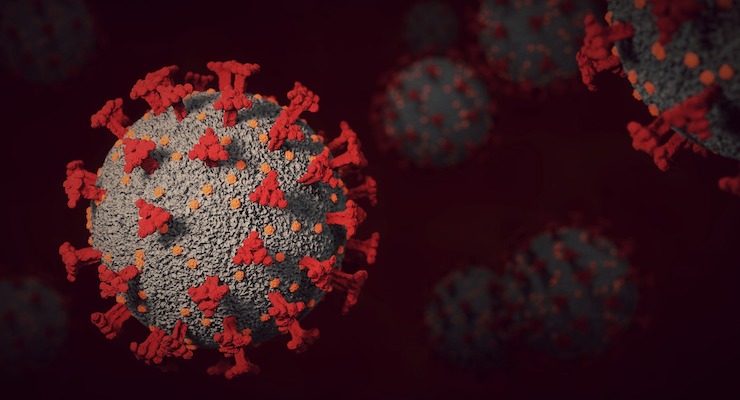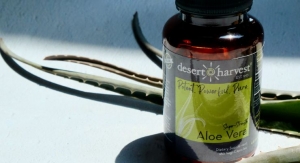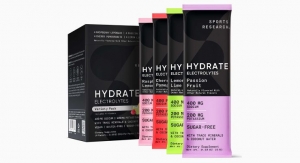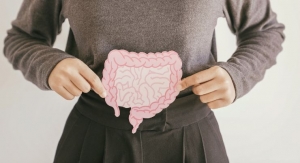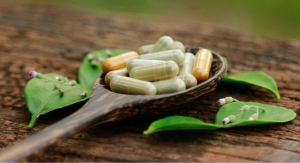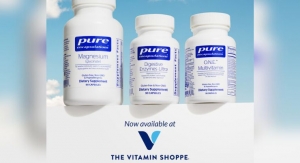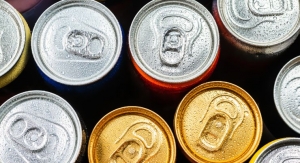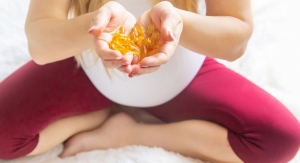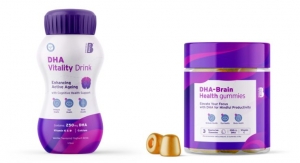01.17.22
Vitamin K2 status may have a stronger association with COVID-19 related inflammation than vitamin D deficiency, according to a new observational study on hospitalized patients infected with the virus. The study was conducted by researchers at Canisius-Wilhelmina Hospital in the Netherlands, who have a scientific collaboration with Norwegian vitamin K2 manufacturer Kappa Bioscience. The study appears in Frontiers in Nutrition.
Pathology during COVID-19 infection arises partly from an excessive inflammatory response with a key role for interleukin (IL-6), the authors noted, and researchers have proposed both vitamins D and K as potential modulators of this process.
135 hospitalized patients with COVID-19 were measured for circulating 25(OH)D and dp-ucMGP, the standard measurement of vitamin K status. These concentrations were then evaluated in relation to inflammatory response, elastic fiber degradation, and clinical outcomes.
Among the population, the variations in vitamin D concentrations didn’t have statistically significant relationships with COVID-19 outcomes. However, IL-6 levels, which were significantly higher in patients with poor outcomes, were affected by levels of extrahepatic vitamin K. Vitamin D levels were only borderline statistically significant when it came to correlations with IL-6, the authors noted, and a significant association was also found between IL-6 and elastic fiber degradation.
Contrary to vitamin K status, vitamin D status didn’t correlate with elastic fiber degradation.
“IL-6 is a pro-inflammatory cytokine that plays a key role in the development of severe COVID-19 and is regarded as an important therapeutic target,” senior author Jona Walk, MD, PhD, said. “We demonstrated a highly significant correlation between elevated IL-6 levels and poor vitamin K status, whereas the association with vitamin D was only borderline significant.”
An intervention trail may provide insight as to whether vitamin K administration, either in combination with vitamin D or alone, might improve clinical outcomes of COVID-19, the authors added.
“There are many vitamin D proponents from scientists and medical doctors to influencers and eminent politicians, advocating the distribution of vitamin D among the general population to reduce the burden of COVID-19,” Pulmonologist and translational researcher Rob Janssen, MD, PhD, who is credited with discovering the link between COVID-19 infections and vitamin K deficiencies, said. “However, administration of vitamin D without K may not be without risk, as vitamin D increases the demand for K. This may cause further vitamin K depletion, which could be harmful in patients with moderate or severe COVID-19 who are without exception already vitamin K deficient. Based on our current data and previous work (Janssen R. et al, British Journal of Nutrition, 2020), I strongly suggest that vitamin K2 should be added to D supplementation, particularly against the background of the ongoing pandemic.”
Pathology during COVID-19 infection arises partly from an excessive inflammatory response with a key role for interleukin (IL-6), the authors noted, and researchers have proposed both vitamins D and K as potential modulators of this process.
135 hospitalized patients with COVID-19 were measured for circulating 25(OH)D and dp-ucMGP, the standard measurement of vitamin K status. These concentrations were then evaluated in relation to inflammatory response, elastic fiber degradation, and clinical outcomes.
Among the population, the variations in vitamin D concentrations didn’t have statistically significant relationships with COVID-19 outcomes. However, IL-6 levels, which were significantly higher in patients with poor outcomes, were affected by levels of extrahepatic vitamin K. Vitamin D levels were only borderline statistically significant when it came to correlations with IL-6, the authors noted, and a significant association was also found between IL-6 and elastic fiber degradation.
Contrary to vitamin K status, vitamin D status didn’t correlate with elastic fiber degradation.
“IL-6 is a pro-inflammatory cytokine that plays a key role in the development of severe COVID-19 and is regarded as an important therapeutic target,” senior author Jona Walk, MD, PhD, said. “We demonstrated a highly significant correlation between elevated IL-6 levels and poor vitamin K status, whereas the association with vitamin D was only borderline significant.”
An intervention trail may provide insight as to whether vitamin K administration, either in combination with vitamin D or alone, might improve clinical outcomes of COVID-19, the authors added.
“There are many vitamin D proponents from scientists and medical doctors to influencers and eminent politicians, advocating the distribution of vitamin D among the general population to reduce the burden of COVID-19,” Pulmonologist and translational researcher Rob Janssen, MD, PhD, who is credited with discovering the link between COVID-19 infections and vitamin K deficiencies, said. “However, administration of vitamin D without K may not be without risk, as vitamin D increases the demand for K. This may cause further vitamin K depletion, which could be harmful in patients with moderate or severe COVID-19 who are without exception already vitamin K deficient. Based on our current data and previous work (Janssen R. et al, British Journal of Nutrition, 2020), I strongly suggest that vitamin K2 should be added to D supplementation, particularly against the background of the ongoing pandemic.”

